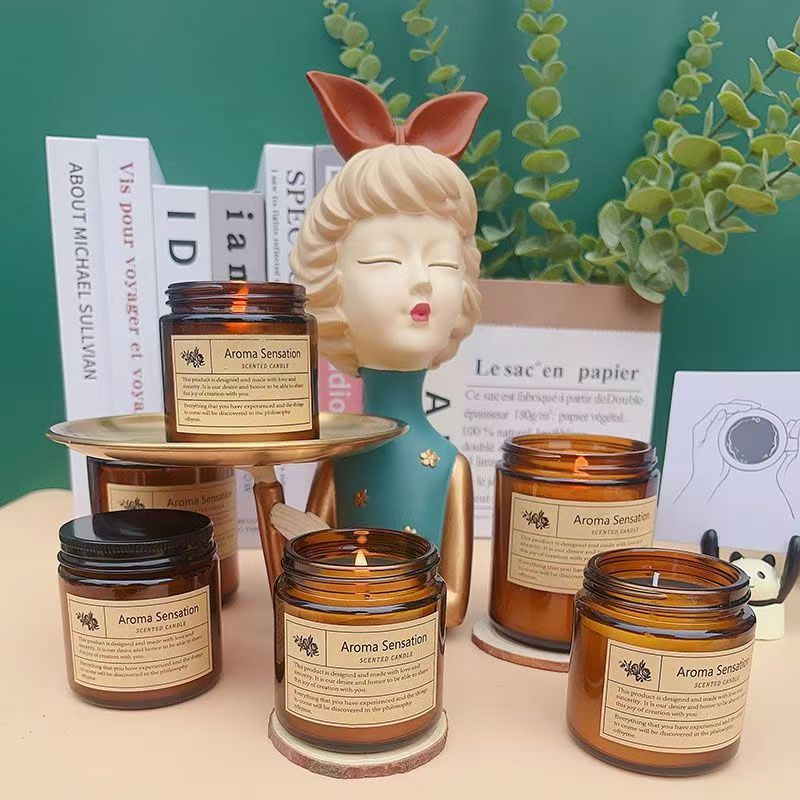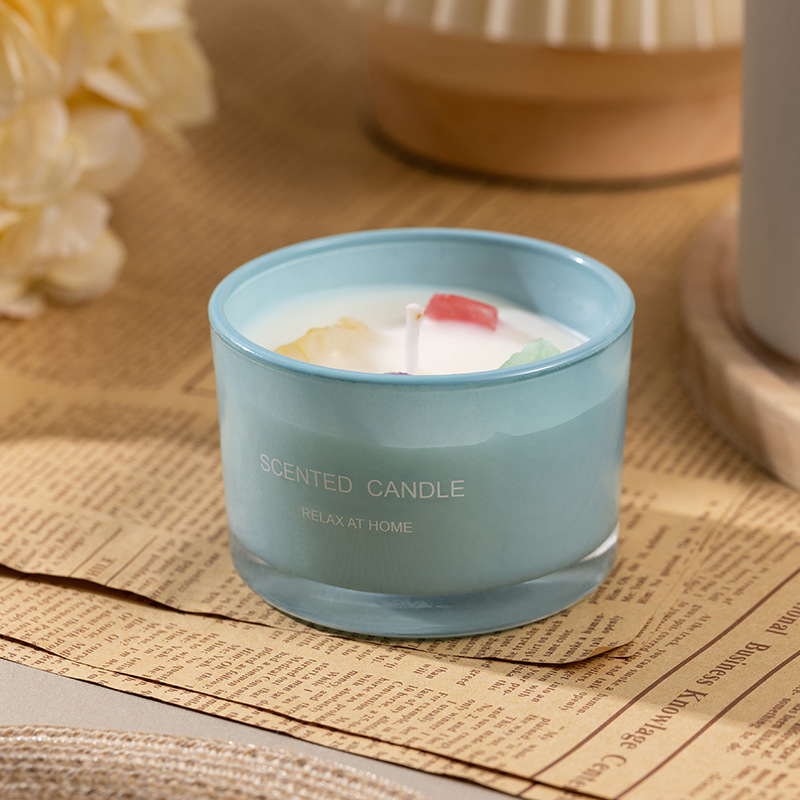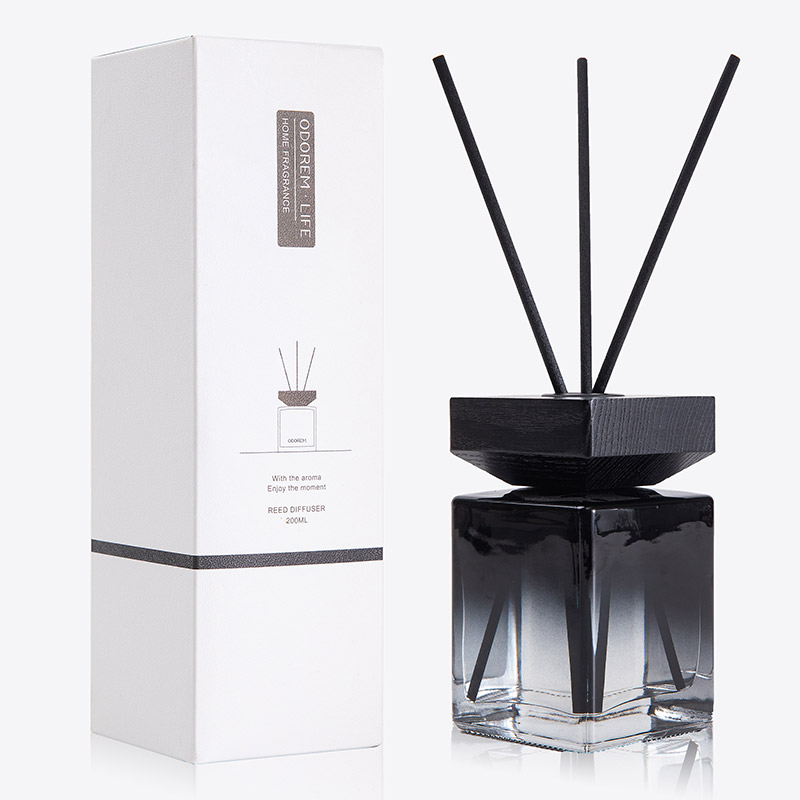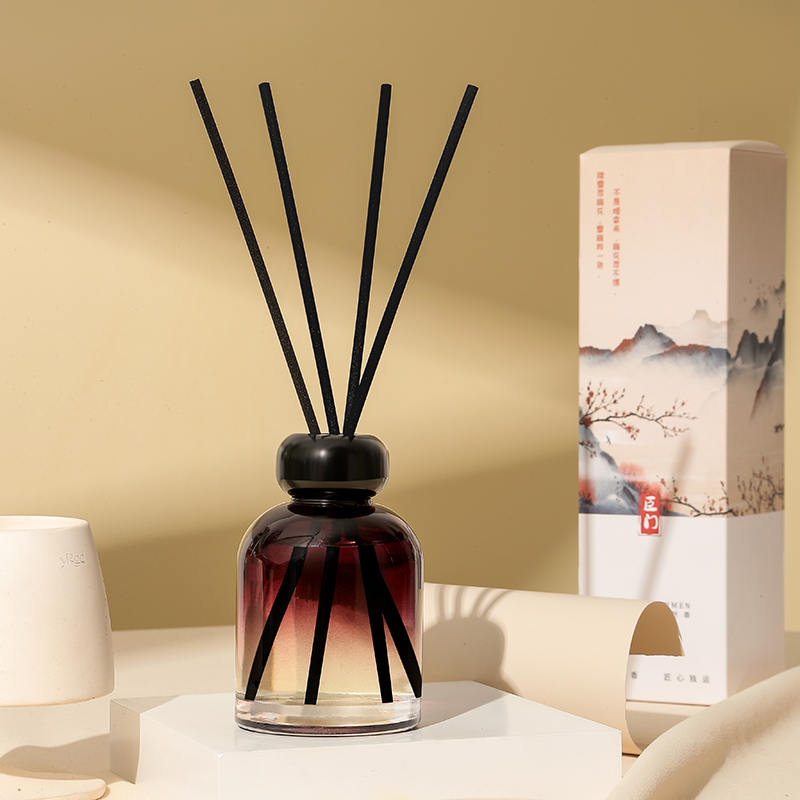Scented Candles:What Scents of Scented Candles Boost Relaxation at Home?
Content
- 1 1. What Natural Plant Scents Are Most Effective for Relieving Stress?
- 2 2. How Do Woody and Earthy Scents Contribute to a Calm Home Atmosphere?
- 3 3. Can Citrus and Herbal Scents Help Relax Without Feeling Overly Stimulating?
- 4 4. What Factors Should Be Considered When Matching Scents to Different Home Spaces?
- 5 5. How to Use Scented Candles Safely to Enhance Relaxation?
After a long day of work or study, stepping into a home filled with a gentle, pleasant fragrance can instantly ease tiredness and calm the mind. Scented candles, with their soft glow and lingering aroma, have become a popular choice for creating a relaxing home atmosphere. But with a wide variety of scents available—from floral and woody to citrusy and herbal—how do you know which ones truly boost relaxation? This article will answer key questions about scented candle scents and their relaxation effects, helping you find the perfect match for your home.
1. What Natural Plant Scents Are Most Effective for Relieving Stress?
Natural plant-based scents have long been associated with stress relief, as many contain compounds that can soothe the nervous system. When choosing scented candles for relaxation, focusing on these plant-derived fragrances is a great starting point.
- Lavender: One of the most well-known stress-relieving scents, lavender has a soft, floral aroma that helps lower anxiety levels. Studies have shown that lavender scent can reduce the production of stress hormones, making it ideal for use in bedrooms or living rooms after a busy day. A lavender-scented candle lit during a evening wind-down—whether you’re reading a book or taking a bath—can slow down your breathing and ease mental tension.
- Chamomile: With its mild, apple-like fragrance, chamomile is another top choice for relaxation. It’s often linked to improving sleep quality and calming restlessness. If you struggle with racing thoughts at night, lighting a chamomile-scented candle an hour before bed can create a serene environment that prepares your body for sleep.
- Eucalyptus: Though it has a fresh, invigorating scent, eucalyptus is also effective for relieving stress—especially when paired with a warm, cozy setting. Its crisp aroma can clear mental fog, making it suitable for days when you feel overwhelmed or mentally drained. It works well in bathrooms (paired with a hot shower) or home offices to create a calm yet focused atmosphere.
Avoid overly strong or synthetic versions of these scents, as they may irritate the senses instead of relaxing them. Look for candles that use natural essential oils rather than artificial fragrances for a more authentic, gentle effect.
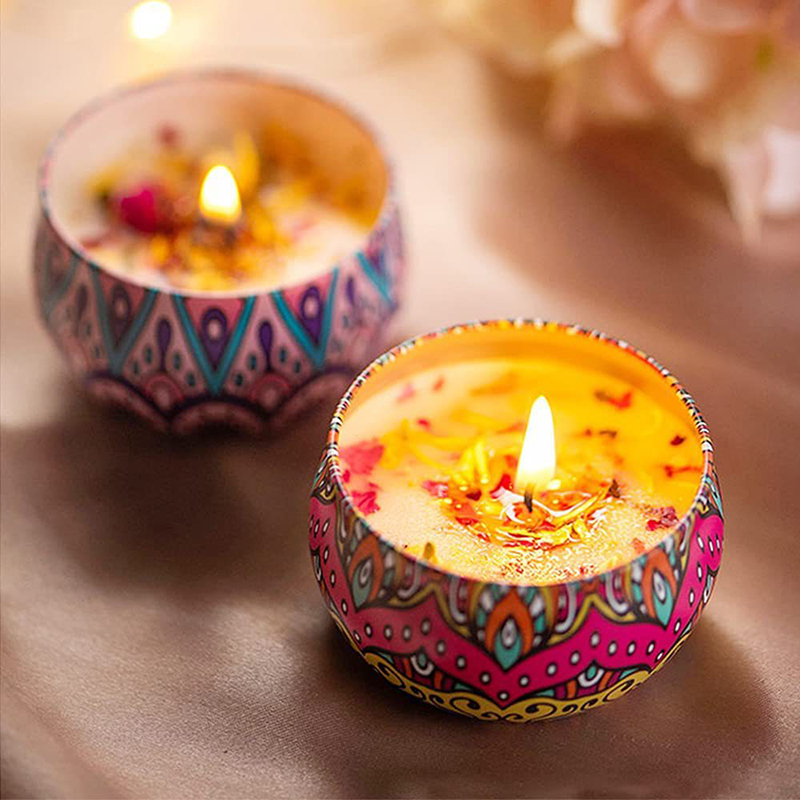
2. How Do Woody and Earthy Scents Contribute to a Calm Home Atmosphere?
Woody and earthy scents evoke a sense of connection to nature, which can bring a feeling of stability and calm to a home. These scents are perfect for creating a warm, grounded atmosphere—ideal for cooler months or when you want to feel “rooted” after a chaotic day.
- Sandalwood: With its rich, creamy, and slightly sweet aroma, sandalwood has a slow-burning, lingering scent that promotes relaxation. It’s often used in meditation practices because it helps quiet the mind and reduce distractions. A sandalwood-scented candle in a living room or meditation corner can turn a ordinary space into a peaceful retreat.
- Cedarwood: Cedarwood has a fresh, woody scent with hints of warmth, similar to walking through a forest. It’s known for reducing anxiety and promoting feelings of security. This scent works well in bedrooms or entryways—lighting it when you get home can help you “unwind” from the outside world and feel more at ease in your space.
- Vetiver: Vetiver has a deep, earthy aroma with subtle smoky notes. It’s often called a “calming anchor” because it helps steady erratic emotions and reduce restlessness. If you often feel anxious or overwhelmed, a vetiver-scented candle can create a sense of calm that lingers even after the flame is extinguished.
When using woody or earthy scented candles, pair them with soft lighting (like dimmed lamps) to enhance their grounding effect—this combination can make your home feel like a cozy, safe haven.
3. Can Citrus and Herbal Scents Help Relax Without Feeling Overly Stimulating?
Many people assume citrus scents are too “energizing” for relaxation, but when chosen carefully, they can create a light, refreshing calm that’s perfect for daytime or warmer seasons. Herbal scents, meanwhile, offer a crisp, clean relaxation that’s great for those who prefer less sweet fragrances.
- Lemon Balm: Unlike sharp lemon, lemon balm has a soft, citrusy-herbal scent that’s both refreshing and calming. It helps reduce mental fatigue without stimulating the senses, making it ideal for use in home offices or kitchens during the day. Lighting a lemon balm-scented candle while working or cooking can keep you relaxed but focused.
- Bergamot: With its sweet-tart citrus aroma and subtle floral undertones, bergamot is a versatile scent for relaxation. It’s known for lifting low moods while still promoting calm—making it a good choice for days when you feel “run down” but not necessarily stressed. It works well in living rooms or sunrooms, where its bright yet gentle scent can brighten the space without feeling overwhelming.
- Rosemary (Mild): While strong rosemary can be invigorating, mild rosemary scents have a earthy-herbal aroma that eases tension. It’s especially helpful for relieving mental clutter—if you’ve had a busy day with lots of tasks, a mild rosemary-scented candle can help clear your mind and make it easier to relax.
The key to using citrus and herbal scents for relaxation is to avoid overly concentrated fragrances. Opt for candles where the scent is “light and diffused” rather than strong and overpowering—this way, you get the refreshing benefits without feeling stimulated.
4. What Factors Should Be Considered When Matching Scents to Different Home Spaces?
The same scent can feel very different in different rooms—so matching the scent to the space is key to maximizing relaxation. Here are some questions to ask when choosing a scented candle for a specific room:
- Bedroom: What scents promote sleep? Bedrooms are for rest, so choose scents that calm the mind and prepare the body for sleep—like lavender, chamomile, or mild sandalwood. Avoid scents that are too sweet or sharp (like strong vanilla or citrus), as they may keep you awake.
- Bathroom: What scents enhance a spa-like feel? Bathrooms are for self-care, so scents that feel “clean and soothing” work best—like eucalyptus, peppermint (mild), or lemon balm. These scents pair well with hot showers or baths, as the steam helps spread the fragrance and enhance relaxation.
- Living Room: What scents create a welcoming, cozy atmosphere? Living rooms are for unwinding with family or alone, so versatile scents like cedarwood, bergamot, or mild vetiver work well. These scents are warm enough to feel cozy but not too heavy to overwhelm guests.
- Home Office: What scents keep you relaxed but focused? Home offices need scents that reduce stress without making you sleepy—like mild rosemary, lemon balm, or light eucalyptus. These scents help clear mental fog while keeping you calm, making it easier to work without feeling overwhelmed.
Also, consider the size of the room: smaller spaces (like bathrooms) need lighter scents, while larger spaces (like living rooms) can handle slightly stronger fragrances. This ensures the scent is “just right”—not too faint to notice, but not too strong to irritate.
5. How to Use Scented Candles Safely to Enhance Relaxation?
While scented candles are great for relaxation, safety is always a priority—using them correctly ensures you get the calming benefits without risk. Here are key safety questions to keep in mind:
- Where Should Candles Be Placed? Always place candles on a stable, heat-resistant surface (like a ceramic tray or candle holder) and keep them away from flammable items (curtains, blankets, paper). Avoid placing them near open windows (wind can cause the flame to flicker) or in high-traffic areas (where they might be knocked over).
- How Long Should Candles Be Burned? Most scented candles should be burned for 2-4 hours at a time—burning them longer can cause the wax to overheat or the wick to become too long (which leads to smoke). This also helps the candle burn evenly, so the scent is distributed consistently.
- What About Ventilation? While it’s nice to have a fragrant room, make sure there’s mild ventilation (like a slightly open window) when burning candles. This prevents the scent from becoming too concentrated (which can cause headaches) and ensures fresh air circulates.
By following these safety tips, you can enjoy the relaxation benefits of scented candles without worrying about accidents—making your home feel both calm and secure.
Choosing scented candles for home relaxation isn’t just about picking a “nice smell”—it’s about finding scents that match your mood, your space, and your relaxation needs. Whether you prefer the soft calm of lavender, the grounding warmth of sandalwood, or the fresh ease of lemon balm, the right scent can turn your home into a relaxing retreat. By considering the questions in this article—from scent types to space matching and safety—you can find scented candles that not only smell great but also help you unwind, recharge, and feel at peace in your own home.

 English
English Español
Español عربى
عربى


